Since the beginning of this year, Ukrainians have been withdrawing their money from banks. Although it is only a few percent compared to what remains on bank deposits, the outflow of money is measured in tens of billions of hryvnias.
Seasonality, which will soon pass, and the monetization of all negative forecasts regarding the situation at the front and in the economy are cited as reasons.
How serious is the problem?
Since the beginning of the war, the Ukrainian banking system has shown itself from the best side - its stable and reliable work has earned the trust of Ukrainians, who continued to bring money to banks in these difficult times.
But in January 2024, according to operational data of the NBU, the volume of deposits decreased. At the same time, hryvnia deposits - both of the population and of businesses - decreased by about 50 billion hryvnias (or by more than 3%). And currency deposits among the population also decreased, albeit at a lower rate.
Danylo Hetmantsev, head of the parliamentary committee on finance and tax policy, was one of the first to make these operational statistics public.
"These are the largest rates and volumes of hryvnia deposit reduction since the beginning of the war," he commented on the figures, immediately emphasizing that "there is no betrayal here," and that the Ukrainian banking system will continue to be stable, and the NBU's actions will be effective.
However, the reduction of deposits continued in February. According to the calculations of the former Minister of Economy Bohdan Danylyshyn, taking into account that only in the first week of February, deposits decreased by another UAH 10 billion, the total reduction of hryvnia deposits based on the results of the first two months of the year may amount to about UAH 100 billion.
Seasonality?
Announcing the data on the record reduction of bank deposits during the war, Danylo Hetmantsev noted that, in general, this trend - albeit with smaller volumes - is characteristic of the first month of the year.
"This trend was observed in nine out of the last ten years. Although, of course, each year has its own specifics, as was the case, for example, at the beginning of 2015 or 2022," he wrote in Telegram.
However, the schedule provided by the deputy in the same message shows that there was no such outflow of deposits from banks, for example, last year, despite massive Russian attacks on the energy sector and blackouts. But at the beginning of 2022 - before the Russian invasion - money was taken from banks as actively as this year.
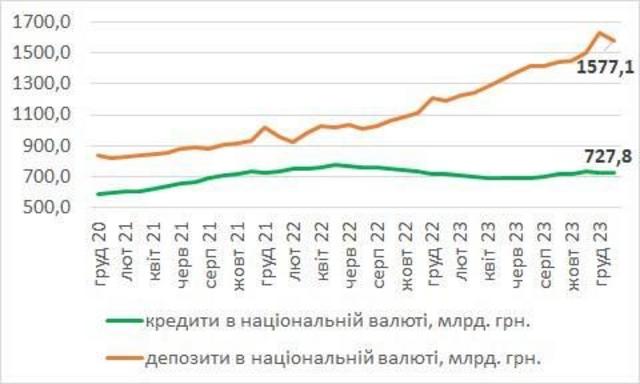
PHOTO BY DANILO HETMANTSEV/TELEGRAM
Bohdan Danylyshyn also partly agrees with the version about "seasonality".
"The high base of comparison in December is usually associated with the implementation of budget contracts. In January, on the other hand, receipts on customer accounts are smaller against the background of traditionally high import costs for winter. This leads to a decrease in the balance of funds on the accounts of businesses and individuals," the economist explains.
January statistics on deposits in the Deposit Guarantee Fund are explained in the same way.
In particular, as the deputy managing director of the fund Olga Bilay stated, the outflow of deposits is a traditional seasonal phenomenon, typical for this period and in previous years. At other times, the number of deposits in the banking system even during the war is growing - not least due to the fact that during the martial law they are 100% guaranteed by the state.
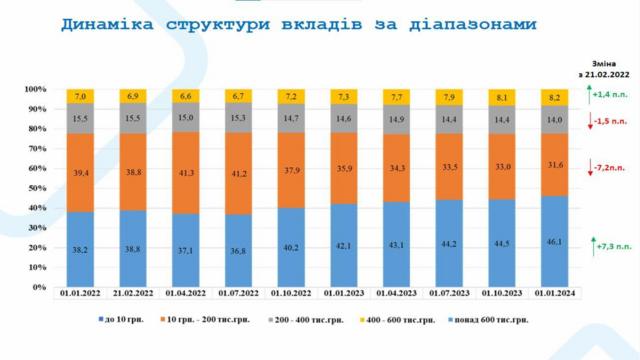
PHOTO AUTHOR, INVESTMENT GUARANTEE FUND
And the latest data of the National Bank, given in the February review of the banking sector, indicate that in 2023, the amount of hryvnia funds of individuals in bank deposits increased by more than 20%.
So what else, apart from seasonality, did they start to decline at the beginning of 2024?
Mobilization in a new way and other legislative initiatives?
The end of 2023 and the beginning of 2024 were marked by several initiatives of the government and parliament, the introduction of which may strengthen the state's control over the incomes and accounts of citizens, or even mean their blocking altogether.
One of these initiatives was mentioned by Danylo Hegmantsev, who suggested that the outflow of deposits could be connected with the new draft law on mobilization.
In particular, we are talking about the rules on blocking the bank accounts of "evaders". At the same time, the chairman of the financial committee of the parliament immediately emphasized that these norms will not be supported.
However, economists and observers, commenting on the outflow of deposits, draw attention to the fact that the strengthening of control or blocking may not necessarily be connected with the mobilization of the army. Instead, it may be about economic or tax mobilization, for which the state may want more control over citizens' accounts.
For example, the government has already had to deny plans to tax all card transfers of citizens, supposedly foreseen by the National Income Strategy. But the "sediment" remained.
Observers also drew attention to the notification of the National Bank about the proposed changes to the rules of storage, protection, use and disclosure of bank secrets, including the possibility of tax access to the full numbers of bank cards of Ukrainians and operations on them. This will make it possible to fully identify a person who has a bank account - and therefore to control where he receives funds from and where he transfers them.
"For example, if a person rents out an apartment, this income should be taxed. As you know, in many cases, tenants transfer money to the card," economist Oleg Pendzyn explained to TSN the possible consequences of the proposed changes.
So far, these are only plans, but even their presence in the authorities and the fact that similar initiatives continue to appear, may influence the desire of Ukrainians to "shine" their income in bank accounts.
However, they can be guided by a tactic that is more understandable and proven by decades of crises and instability - to convert the hryvnia into foreign currency.
Buying currency?
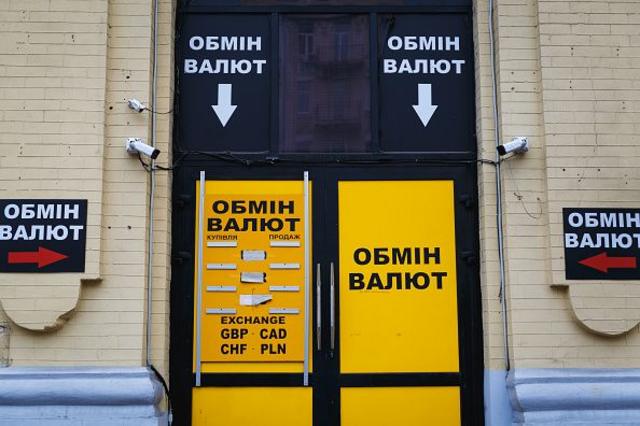
PHOTO BY GETTY IMAGES
"The main direction of the outflow of deposits is the purchase of cash foreign currency and the payment of imports," suggests Bohdan Danylyshyn.
That is, at the beginning of 2024, the population and businesses withdrew hryvnias from their bank accounts and used them to buy dollars and euros. People are so used to saving an extra penny against devaluation for "a bad day", and businesses need currency for imports.
Danylyshyn draws attention to another record - in January 2024, the net acquisition of cash foreign currency by the population (the difference between sale and purchase) amounted to a record 0.9 billion dollars. The economist explains: the desire to exchange hryvnias for dollars has increased since December - after the appearance of uncertainty regarding foreign aid. And the dollar rate started to rise from the end of last year.
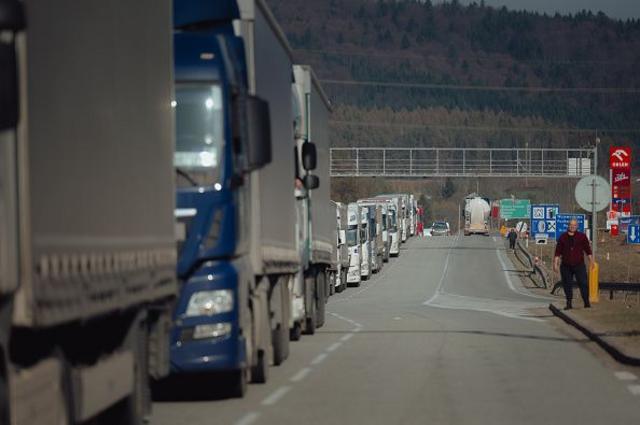
PHOTO BY GETTY IMAGES
At the same time, business also needs more currency. In January 2024, Ukraine imported goods worth more than 5 billion dollars, which is 1% more than in 2023, but then it was necessary to urgently import a large number of generators and other energy equipment, reminds Bohdan Danylyshyn.
In general, according to the State Customs Service, in 2023 Ukraine imported almost twice as much as it exported. And in 2024, the cost of imports may increase due to problems with the passage of goods on the western borders of Ukraine, primarily with Poland.
As stated in the Association of Retailers of Ukraine (RAU), the blockade of the border by Poland forces to look for alternative routes for imports, which increases the cost of each flight by 600-1000 euros. This will lead to an increase in prices for a number of goods for end consumers, RAU says. The higher cost (and the higher exchange rate of the dollar and the euro, which have also started to rise since the beginning of the year) requires more funds.
Just need money?
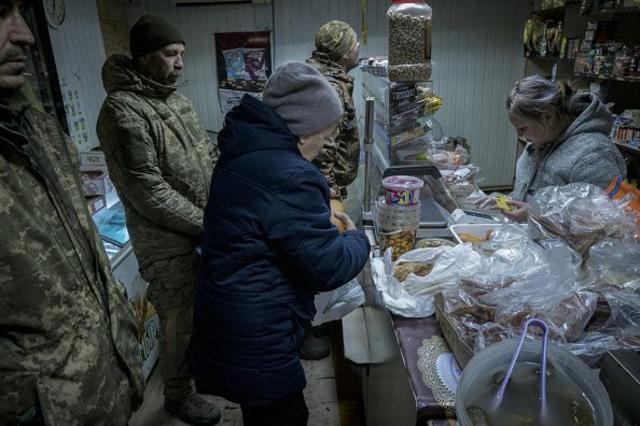
PHOTO BY GETTY IMAGES
For all these considerations, even the simplest explanation should not be rejected: people simply need money.
According to a survey by the Razumkov Center, in January 2024, 57% of Ukrainians assessed the economic situation in the country as bad, and more than a third assessed the financial condition of their family equally poorly. One in ten says they barely make ends meet.
However, these indicators have even improved slightly compared to December 2023, and are now roughly at the pre-war level.
But when asked how the financial situation of the family has changed since the beginning of the Russian invasion, 58% of respondents say that it has worsened.
And in January 2024, the share of those who believe that the situation in the Ukrainian economy will further deteriorate has increased to 33%. A year ago, there were 23% of them. One in four expects deterioration for his own family.
As early as 2022, according to World Bank estimates, about 7 million Ukrainians will be below the poverty line, and the poverty level has increased from 5.5% to 24%. At the same time, the Institute of Demography estimated that in 2023 up to 20 million Ukrainians out of the 30-31 million who are currently in the territory controlled by Ukraine will live in poverty and on less than UAH 5,000 a month.

